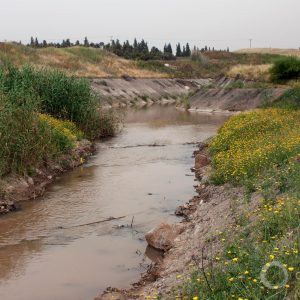The Stream, January 17: Sunken Coal Ship Renews Pollution Concerns In Bangladesh
The Global Rundown
A ship carrying coal sank in a river estuary of the Sundarbans, raising more alarms in Bangladesh over proposed power plants in the region. Saudi Arabia is expected to invest billions of dollars in renewable energy, helping to provide electricity to power-hungry desalination plants. Private companies could see trillions of dollars in new business if the world reaches the Sustainable Development Goals, a new study found. A drought in Jammu and Kashmir is putting more pressure on farmers already dealing with border conflicts, while dry weather in Brazil could push global coffee prices higher this year.
“If the Rampal coal plant is built, it will require hundreds more coal ships and barges to travel through the Sundarbans. This is one of the many reasons why the World Heritage Centre and International Union for the Conservation of Nature concluded that the proposed Rampal power plant poses a serious threat to the Sundarbans and should be cancelled.” –Sharif Jamil, coordinator of Waterkeepers Bangladesh, expressing concern about a proposed power plant near the Sundarbans mangrove forest. Last week, a ship carrying 1,000 metric tons of coal sank in a river estuary near the forest. (The Third Pole)
By The Numbers
$30 to 50 billion Amount Saudi Arabia is expected to invest in a new renewable energy program over the next five years to ease the kingdom’s growing electricity demand, including for desalination plants. Reuters
2007 Year that an ongoing dry spell began in India’s Jammu and Kashmir state, according to meteorologists. Drought conditions hit farmers particularly hard this season, further complicating harvests that have been interrupted by border conflicts. Reuters
Science, Studies, And Reports
Reaching the United Nations’ Sustainable Development Goals could create $12 trillion in market opportunities for private companies by 2030, according to a study by the Business and Sustainable Development Commission. The SDGs include a goal to improve global water access, among other provisions that aim to end poverty. Reuters
In context: Explore Circle of Blue’s Q&A series asking experts about the significance of the Sustainable Development Goals for water, how they can be achieved, and how they will be measured.
On The Radar
Dry weather forced the government of Brazil’s Espirito Santo state to resume limits on irrigation withdrawals for coffee farmers last week. The cuts threaten to reduce harvests in the state, which is the country’s largest producer of robusta coffee, and could push up prices globally. Bloomberg
A news correspondent for Circle of Blue based out of Hawaii. She writes The Stream, Circle of Blue’s daily digest of international water news trends. Her interests include food security, ecology and the Great Lakes.
Contact Codi Kozacek




